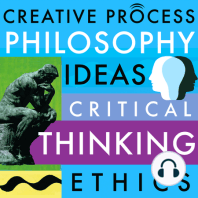44 min listen

How to achieve Optimal Well-Being with Emotional Intelligence - Highlights - DANIEL GOLEMAN
How to achieve Optimal Well-Being with Emotional Intelligence - Highlights - DANIEL GOLEMAN
ratings:
Length:
12 minutes
Released:
Apr 26, 2024
Format:
Podcast episode
Description
“If you look at meditation, and you strip away the belief system, you find that essentially every meditation is attention training. It might be bringing your mind back to a mantra; some sound, or to your breath, or to a particular attentional stance. I like mindfulness of breathing, where you pay full attention to your in-breath, and to your out-breath, and then the next breath, the in-breath, and the out-breath. At some point, your mind is going to wander off. That's the way our minds are wired. But here's the key: When you notice your mind has wandered and you bring it back to the point of focus—to the next breath, for example—that's the moment of mindfulness. Attention training of this kind is really a beautiful avenue into the optimal state, where you're fully focused on what you're doing. And in this state, which is one of high creativity, people experience themselves as part of a web of connection. The connection may be to the artists who have gone before you, whose work you imbibe and build on, or the writers whose thoughts you're building on, or the people who are doing this with you, in whatever context that might be. Thich Nhat Hanh calls this interbeing; being fully connected and interdependent. I remember a dialogue from years ago, in the 80s, with the Dalai Lama and a group of psychologists, where he said: In my languages, Tibetan and Sanskrit, the word for compassion implies for yourself as well as for others. In English, it only focuses on others. He said, you need a new word in the English language—self compassion. Today, there's a rather robust field of research on that, but the Dalai Lama saw that gap way before, because he realized that our view of compassion didn't include first taking care of ourselves.”Daniel Goleman is an American psychologist, author, and science journalist. Before becoming an author, Goleman was a science reporter for the New York Times for 12 years, covering psychology and the human brain. In 1995, Goleman published Emotional Intelligence, a New York Times bestseller. In his newly published book Optimal, Daniel Goleman discusses how people can enter an optimal state of high performance without facing symptoms of burnout in the workplace.www.danielgoleman.infowww.harpercollins.com/products/optimal-daniel-golemancary-cherniss?variant=41046795288610www.penguinrandomhouse.com/books/69105/emotional-intelligence-by-daniel-goleman/www.creativeprocess.infowww.oneplanetpodcast.orgIG www.instagram.com/creativeprocesspodcast
Released:
Apr 26, 2024
Format:
Podcast episode
Titles in the series (100)
Vitaliy Katsenelson - Author of “Soul in the Game: The Art of a Meaningful Life” - CEO of IMA: Conversation about life, investing, meaningful, mindfulness, parenting, immigration, Stoicism, writing, teaching by Philosophy, Ideas, Critical Thinking, Ethics & Morality: The Creative Process: Philosophers, Writers, Educators, Creative Thinkers, Spiritual Leaders, Environmentalists & Bioethicists